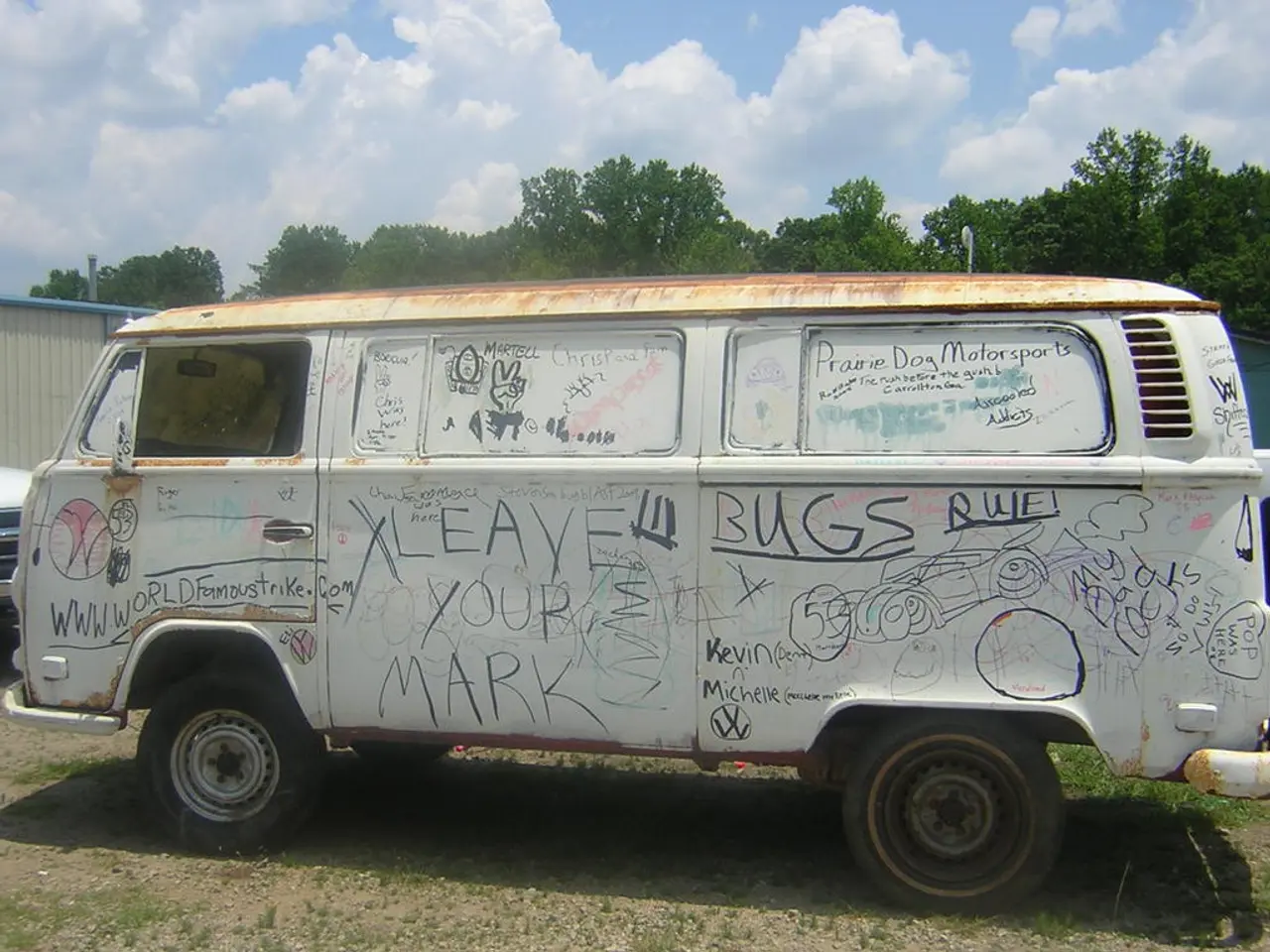Insurance Guidance from NRW Consumer Centre to Ensure Proper Coverage
Insuring Your Motorhome or Caravan: A Comprehensive Guide
Camping holidays are a popular choice for many, and with the growing demand for caravans and motorhomes, it's essential to ensure you have the right insurance coverage for your journey. Here's a breakdown of the key points to consider.
Firstly, it's important to note that items stored in an awning may not be included in the contents insurance coverage. Therefore, it's crucial to check your policy or consider additional coverage for these items.
In Q1 of 2025, new registrations for private caravans and motorhomes increased compared to the previous year, indicating a high demand for these vehicles. However, the price level for them has slightly decreased due to overcapacity.
Elke Weidenbach, an insurance expert, emphasizes the importance of insuring luggage and technical equipment during camping holidays. She recommends considering a comprehensive insurance policy that covers third-party liabilities, your own vehicle, and personal belongings.
When it comes to motorhome insurance, bicycles on a carrier are often not covered, as they are located on, not in, the vehicle. Some insurance providers exclude bicycles and other sports equipment from the insurance coverage completely, while others have varying maximum compensation limits. If you carry bikes externally or want specific, full coverage for them, you may need to buy separate bike insurance or an add-on to your policy.
In commercial motorhome rentals, insurance coverage is usually part of the rental agreement, but it's important to check the coverage before signing. Private rentals may not have insurance coverage for motorhomes, and it's crucial to check if the camper is registered as a "self-drive rental vehicle" according to the vehicle papers.
The recommended insurance policies for motorhomes and caravans typically include three main cover types: third-party liability insurance, third-party, fire and theft insurance, and comprehensive insurance. Additional recommended coverages include contents insurance, liability insurance, coverage for bicycles, roadside assistance, collision and comprehensive coverage, and windscreen and awning cover.
If renting a motorhome or caravan, typical private auto insurance usually doesn’t cover rental RVs or driven motorhomes. You should obtain insurance through the rental company or specialized rental RV insurance plans.
In summary, a well-rounded motorhome or caravan insurance policy should include liability insurance (third-party at minimum), comprehensive coverage for your vehicle, contents insurance for personal belongings, including bicycles, and additional protections such as roadside assistance and specific item cover (awnings, generators). Carefully review policy terms and consider add-ons based on your travel habits and items you carry.
It's also worth noting that normal home contents insurance does not cover items stored in motorhomes or caravans during camping. Camping car insurance (also known as "camping insurance") secures items that are permanently stored in the vehicle. A travel luggage insurance policy is not suitable for camping holidays as it only covers luggage during transportation and has low insurance and compensation sums.
Finally, it's recommended to have full or at least partial comprehensive coverage for motorhomes to protect against damages. Expensive e-bikes should have their insurance conditions thoroughly examined. Cash, credit cards, securities, and jewelry are often excluded from contents insurance coverage. Motor vehicle liability insurance is legally required for motorhomes and caravans, just like for cars. Personal belongings are not covered by home contents insurance during camping; contents insurance is needed to insure them against theft, storm, or water damage.
[1] Source: https://www.moneysavingexpert.com/travel/motorhome-caravan-insurance/ [2] Source: https://www.thecaravanclub.co.uk/help-advice/caravan-motorhome-insurance/ [3] Source: https://www.caravanclub.co.uk/help-advice/caravan-motorhome-insurance/ [4] Source: https://www.caravanwise.co.uk/insurance/motorhome-insurance/
- Elke Weidenbach suggests that during camping holidays, a comprehensive insurance policy that covers third-party liabilities, your own vehicle, and personal belongings, including luggage and technical equipment, is crucial for ensuring an adequate lifestyle and travel experience.
- As camping holidays often require specific items such as bicycles and technical equipment, it's essential to check your insurance coverage or consider additional coverage to ensure your travel lifestyle and equipment are secure.





